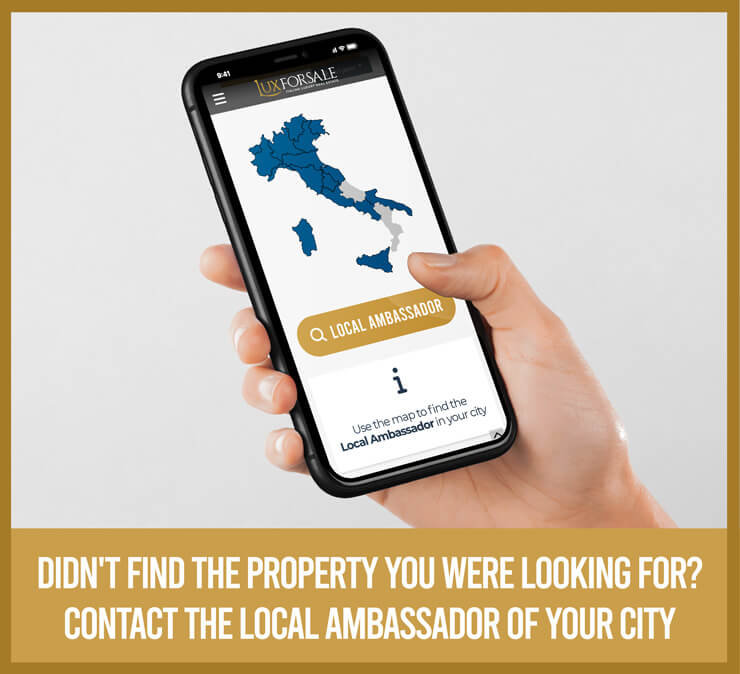High-end hospitality, luxury vacations, business meetings and conventions: luxury hotels are a sector in constant growth.
Is Italy ready to meet the growing demand for high-profile hospitality? We explore this question with Eros Ciccolini, strategic partner of Luxforsale for the hospitality sector. The search for luxury solutions in hotel hospitality requires specific strategies, targeted analysis, and tailored services for investors, property owners, and large international groups. Even the due diligence process for a prestigious hospitality asset requires particular attention.
For this reason, Luxforsale has chosen as a strategic partner a UAE-based advisory firm specialized in hospitality, marina development, and commercial real estate.
The firm operates on a global scale, supporting investors, owners, and brands in the management, enhancement, and transaction of assets, conducting focused market research and facilitating joint ventures between stakeholders.
“In recent years,” says Ciccolini, “the hospitality sector has shown steady growth, becoming an increasingly attractive option for investors. The global hospitality market grew from $5,384.78 billion in 2024 to $5,717.43 billion in 2025, with a compound annual growth rate of 6.2%. The recovery of international tourism—with 1.1 billion global travelers between January and September 2024—has been the main driver, recording an 11% increase compared to 2023. In addition, global hotel investments increased by 16% in 2024, with cross-border investments up by 54%.
In a context of financial market instability, investing in hotel properties offers greater security, thanks to their ability to generate regular cash flows. These features make hospitality a strategic choice for portfolio diversification and a hedge against inflation.”
The way people travel has radically changed: today, travel is not only about exploring, but also about living, working, regenerating, and growing.
“The sector,” Ciccolini confirms, “has responded by innovating its offering. This evolution not only broadens the potential audience but also opens up new opportunities for innovative, flexible, high-experience-value accommodations — making hospitality one of the most dynamic and resilient sectors globally.”
In this evolution, where does Italy stand?
“Italy is globally recognized as one of the most influential countries in the hospitality sector. In terms of hospitality culture, design, creativity, and strategic vision, we can confidently say we have nothing to learn: in fact, we are among the leading innovators worldwide.
However, Italy’s potential as an investment destination in the hospitality sector remains largely untapped. The majority of the current 5-star offering is concentrated in the main luxury tourism destinations, leaving significant room for development in lesser-known areas — rich in identity, landscape, culture, and repositioning potential.”
What are the latest trends in luxury hospitality in Italy, Europe, and globally? What evolves over time, and what remains a foundational pillar?
“The concept of luxury hospitality is constantly evolving, yet grounded in timeless principles. Today, more than ever, luxury means not only opulence but experience, authenticity, and perceived value.
The modern luxury traveler seeks bespoke experiences tailored to their interests, values, and lifestyle. Technology helps, but what truly matters is the human approach—proactive, anticipatory, and emotionally intelligent.
Luxury today is measured by the quality of time experienced. Guests seek an authentic connection with the local territory: hospitality integrated with art, culture, local traditions, food & wine, and nature. This is especially relevant in Italy, where the storytelling potential of the context is unmatched.
Despite the evolution of models and language, some elements remain unchanged: excellent, attentive service; authentic comfort; timeless aesthetics; privacy; and the ability to make each guest feel unique rather than managed.
In short, while the forms of luxury may evolve, the essence remains the same: to create emotional value, deep connection, and uncompromising quality.”
What characteristics of a property guide investor decisions in this sector, either individually or in synergy?
“The quality of the property, location, and additional services are fundamental—but no longer sufficient. Today’s investors look for transformational potential: an asset must be capable of evolving and generating value beyond its current state.
Location remains a primary driver, but it’s now interpreted strategically: not just “where are you”, but “where can you take that destination.” Sometimes a secondary location, with the right storytelling and vision, becomes the next first choice.
As for the structure, it's not just about aesthetics, but about the operating margin it can deliver over time. Services are no longer considered “additional” but must form immersive, experience-driven ecosystems.
In summary: today, investment is about potential, scalability, and impact. The winning approach is hybrid—a combination of real estate, emotional value, and operational strategy.”

 Italiano
Italiano  Français
Français  Español
Español  Deutsch
Deutsch  Português
Português 
